
The Zombies are an English rock band formed in St Albans in 1961. Led by keyboardist/vocalist Rod Argent and vocalist Colin Blunstone, the group had their first British and American hit in 1964 with "She's Not There". In the US, two further singles—"Tell Her No" in 1965 and "Time of the Season" in 1968—were also successful.
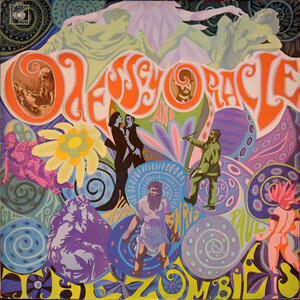
Odessey and Oracle is the second studio album by the English rock band the Zombies. It was released in the UK on 19 April 1968 by CBS Records and in the US on 15 July by Date Records. The album was recorded primarily between June and August 1967 at EMI and Olympic Studios in London.

Rodney Terence Argent is an English musician. In a career spanning more than 50 years, Argent came to prominence in the mid-1960s as the keyboardist, founder and leader of the rock band the Zombies, and went on to form the band Argent after the first break-up of the Zombies.

Colin Edward Michael Blunstone is an English singer and songwriter. In a career spanning more than 60 years, Blunstone came to prominence in the mid-1960s as the lead singer of the rock band the Zombies, which released four singles that entered the Top 75 charts in the United States during the 1960s: "She's Not There", "Tell Her No", "She's Coming Home" and "Time of the Season". Blunstone began his solo career in 1969, releasing three singles under a pseudonym of Neil MacArthur. Since then, he has released ten studio albums under his real name. He appears on several albums with the Alan Parsons Project and sang "Old and Wise".

"See You Later, Alligator" is a 1950s rock and roll song written and first recorded by American singer-songwriter Bobby Charles. The song was a Top Ten hit for Bill Haley and His Comets in 1956 in the United States, reaching no. 6 on Billboard and CashBox. In the UK, the single peaked at no. 7.
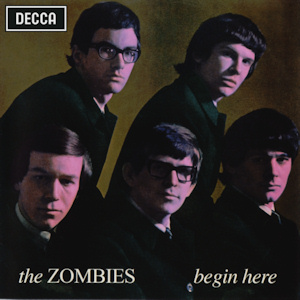
Begin Here is the debut studio album by the English rock band the Zombies, released in April 1965 by Decca Records. The American version repeated many of the tracks from it, but, as was common at the time, deleted some and substituted others.
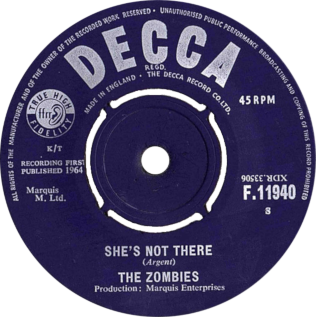
"She's Not There" is the debut single by the English rock band the Zombies, written by keyboardist Rod Argent. It reached No. 12 in the UK Singles Chart in September 1964, and No. 2 on the Billboard Hot 100 in the United States at the beginning of December 1964. In Canada, it reached No. 2.

Christopher Taylor White is an English musician. He came to prominence in the mid-1960s as the bass guitarist and occasional lead vocalist of the rock band The Zombies. White is one of the main composers of the Zombies' music, and made major lyrical contributions to the band's songs. He was inducted into the Rock and Roll Hall of Fame in 2019 as a member of the Zombies.
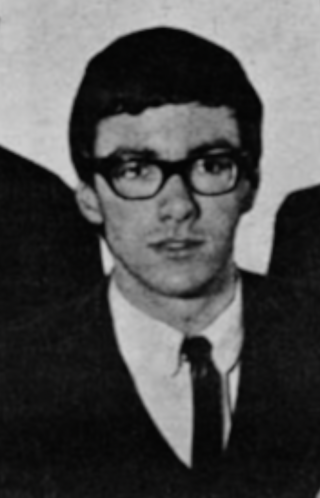
Paul Ashley Warren Atkinson was a British guitarist and record company executive, best known as a founding member of the pop/rock band The Zombies. Atkinson was posthumously inducted into the Rock and Roll Hall of Fame in 2019.
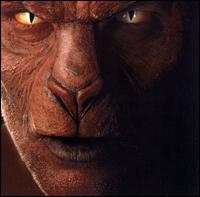
Eye of the Zombie is the fourth solo studio album by American singer/songwriter John Fogerty. Released in September 1986, it was his first album with a backing band, and it includes the Creedence-inspired track "Change in the Weather" as well as "Wasn't That a Woman" and "Soda Pop", his first forays into 1960s-1970s Motown-sounding funk and R&B. The album was not received well by critics and had lukewarm chart success despite a Grammy nomination for Best Male Rock Vocal in 1987. After the Eye of the Zombie tour in 1986, Fogerty did not perform any material from this album in concerts until 2009, when he played "Change in the Weather" at a few shows. The song was also re-recorded in 2009 for The Blue Ridge Rangers Rides Again and performed live on several late-night TV shows to promote the album.

"I Love You" is a 1965 song by the Zombies, written by their bassist Chris White. Written during a tour of France, the song was written at a time the Zombies' mainstream popularity was slowly fading. The song was released as the B-side of Rod Argent's "Whenever You're Ready" to both commercial and critical indifference.

"Why Baby Why" is a country music song co-written and originally recorded by George Jones. Released in late 1955 on Starday Records and produced by Starday co-founder and Jones' manager Pappy Daily, it peaked at 4 on the Billboard country charts that year. It was Jones' first chart single, following several unsuccessful singles released during the prior year on Starday.
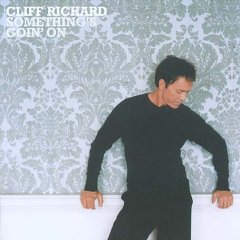
'Something's Goin' On' is the 32nd studio album by British singer Cliff Richard, released by Decca on 25 October 2004 in the UK. The album reached #7 in the UK Albums Chart and was certified "Gold" by the BPI.
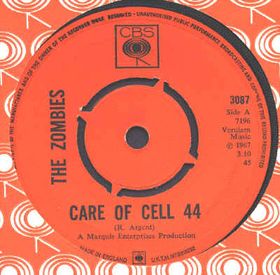
"Care of Cell 44" is a single by the Zombies, released as the lead single from their album Odessey and Oracle in November 1967. It was featured on Pitchfork's "200 Best Songs of the 1960s" list, and has been covered by modern artists including Elliott Smith and Of Montreal.

"Just Out of Reach" is a song written by singer Colin Blunstone, first recorded by his band the Zombies in 1965. In 1965, it was clear that the Zombies were going to be featured in Otto Preminger's 1966 movie Bunny Lake Is Missing. Therefore, the band had struck a deal with Preminger; he wanted three new songs by the group, recorded in the span of only ten days. During this time, the band's primary songwriters, keyboardist Rod Argent and bassist Chris White suffered somewhat from writer's block. Although White had already managed to come up with two songs, "Remember You" and "Nothing's Changed", the third song was still missing, much to the group's disappointment. Therefore, Blunstone was tasked with the final song.

The Zombies is an extended play 45 rpm record released by the English beat group the Zombies in 1964.

"Leave Me Be" is a song by the English rock band the Zombies. Written by Chris White, the band's bass guitarist, "Leave Me Be" was released on a non-album single in October 1964. Following the release of the band's debut single "She's Not There" in July 1964, White wrote a handful of songs in between performances during the band's heavy schedule. Most of the work on the song occurred in August 1964, when the Zombies recorded both a demo and the backing track for it. The instrumentation largely differs from both earlier and later Zombies records; it features electric organ played by Rod Argent, compared to his previous usage of the electric piano. Together with record producer Ken Jones, they returned in September to finish the vocal track, which was disliked by most band members for its similarity to "She's Not There"; the vocals would eventually be re-recorded a few months later.
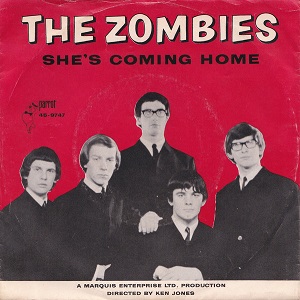
"She's Coming Home" is a song written by keyboardist Rod Argent recorded by his band the Zombies. The song has early origins in Argent's life; he lifted segments from the 1946 song "Magnificat and Nunc dimittis" which he had heard in boy choir. Characterized by its unusual chord progression, the song was recorded on 2 March 1965 during a three-hour session held at Decca Studios along with several other tracks, all of whom were by their standard producer Ken Jones, who knew what Argent had looked for in the song and attempted to produce it in that style.

"I Want You Back Again" is a song written by keyboardist Rod Argent and originally recorded by his band the Zombies. Initially laid down during a session at Decca Studios on 25 November 1964, the group was unsatisfied with the result and the song was not re-recorded until 2 March 1965, together with several other songs. The song largely departs from the soft rock sound of their earlier singles and ventures into jazz rock. Characterized by an unusual rhythmic melody, the song was liked by lead vocalist Colin Blunstone, who didn't like the genre.

"Whenever You're Ready" is a song written by English keyboardist Rod Argent, first recorded by his band the Zombies. Following an American tour in April 1965 supporting their then single "She's Coming Home", the band were disappointed in finding out it had been a chart failure. After the follow-up "I Want You Back Again" was an even less commercial song, pressure from the group's management came forward in order for them to write a commercial song in the style of their earlier singles, which had been hits.





















